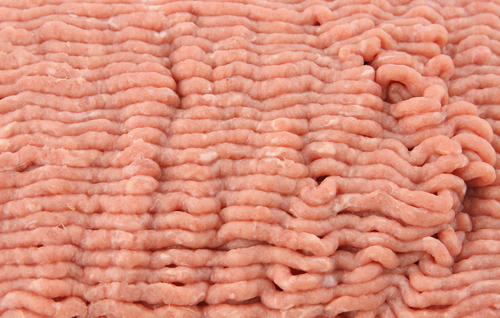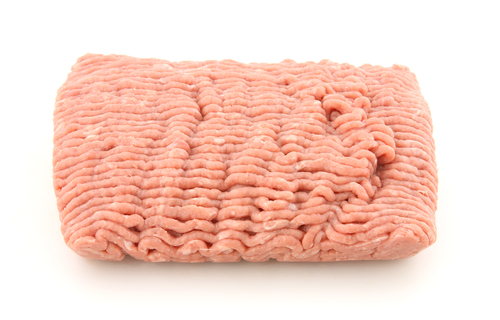Short answer
Ground turkey is not entirely bad for you, however, it is essential to be mindful of labels when choosing your ground turkey. Some types of ground turkey are better than others.
Recommended Alternative
Long answer
Recent buzz surrounding ground turkey has been gaining popularity among the health and culinary world. Often touted as a healthy alternative to ground beef, consumers are flocking to ground turkey to help lose and maintain weight, and add to their protein intake. One of the most frequent perceptions about ground turkey is that it can substitute for ground beef in many recipes because it is healthier. But is this true? The answer is: ‘sometimes’.
When you compare 85/15 ground beef and turkey you will find the following information to be true: turkey contains 220 calories per 4 oz. portion, 17 grams of fat including 4 grams of saturated fat, and 19 grams of protein. The same 4 oz. portion of ground beef will set you back 284 calories, 17.55 grams of fat (with almost 7 grams of saturated fat included), and add 29.4 grams of protein into your diet.
Broken down, this means that if you are on a low calorie or heart healthy diet, ground turkey is nutritionally the better option—by just a small margin. Ground beef packs more protein in one serving, but the additional fat and calories may deter some dieters.
So ground turkey, has a slight advantage in the nutrition department, but how does it stack up in the category of quality? There are two major issues surrounding ground turkey to consider. The first thing to keep in mind that like any other ground meat option, turkey meat has varying degrees of quality. Unlike hot dogs, which rely on a process called mechanical separation (crushing the bones, and processing them to form a paste), ground turkey has a more straightforward processing method.
Anything labeled “ground turkey” can consist of any portion of meat, plus the fat and skin that accompany that cut. If your product is labeled “Ground Turkey Meat”, then only meat (without skin) is present. If it is labeled “Ground Turkey Breast”, then that product only possesses parts from that cut. So while the source of meat and processing method is more appealing than other meats, reading labels is still important. It is also important to remember that because the practice of grinding meat is considered a method of “processing,” certain additives may be present as well.
A great benefit, if you are looking at quality and safety of turkey, is that according to the FDA, hormones are not allowed to be given to turkey livestock. However, this isn’t necessarily the case with antibiotics. Antibiotics are commonly thought of as a necessity in the conventional food industry and are given to large populations of animals to help prevent diseases within the group. The question with administering antibiotics to livestock is whether high levels of antibiotics may be leftover in the meat after butchering it. Critics argue that consumption of these large amounts of antibiotics contributes to antibiotic resistance in humans. When considering ground turkey, purchasing “organic”, “vegetarian-fed” and “raised without antibiotics” labels is the most beneficial.
The use of antibiotics among turkey livestock is due to the ease of contamination given the animals confined and often unsanitary living conditions. Because of their environment, contamination of meat is also extremely problematic with this product. Consumer Reports 2013 analysis of ground beef found that out of 257 samples of ground turkey, a startling 90% showed contamination by at least one form of bacteria. 69% percent of the samples were contaminated with Enterococcus, a major sign of fecal contamination. E. coli, MRSA, and Salmonella were among the other organisms identified, signaling turkey is a breeding ground for potentially harmful bacteria.
These bacteria are also some of the most common species to be antibiotic resistant, meaning if you become infected as a result of eating ground turkey, it may be more difficult and more intensive to treat you. When cooking with ground turkey it is vital that the meat is cooked completely to avoid sickness. Studies also show that organic options contain bacteria that are less antibiotic resistant, so once again choosing organic may be your best option.
Ground turkey has become a popular option suggested by many doctors and fitness experts, however, there is some gray area when it comes to whether or not it is the healthiest option. If you are relying on ground turkey to be a staple of your low calorie or heart-healthy diet and feel comfortable cooking the meat safely, in some cases, it can be a more nutritious option when compared to ground beef—though not always. However, if you are trying to be conscious of minimally processed ingredients or antibiotics in your food, it is best to look for options that are clearly labeled “organic”, “antibiotic free” or “contains no preservatives”.
Possible short-term side effects
- food poisoning
- bloating
Possible long-term side effects
- impaired immune system with high consumption
Ingredients to be aware of
- enterococcus
- e.coli
- mrsa
- salmonella
- antibiotics
- processing
- msg
- sodium
- sodium erythorbate

Benefits
- low calorie
- heart healthy
- lean meat
- fda does not allow hormones
Healthier alternatives
- organic, ground turkey breast
- organic, vegetarian-fed ground beef
Our Wellness Pick (what is this?)
Beyond Meat Ground Beef
- Plant-based protein
- Soy-free formula
- Gluten-free product
- Vegan-friendly
- Convenient 12-pack
 Approved by
Approved by 












.png)


